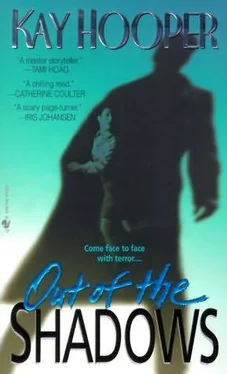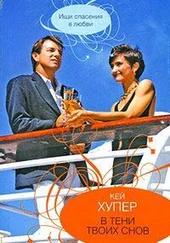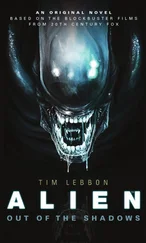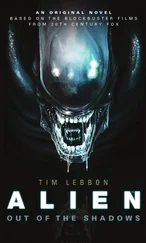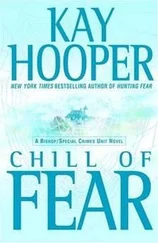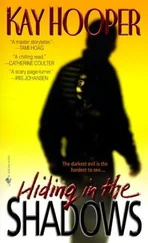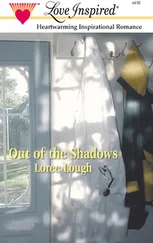Nodding, Bishop said, "That's more than possible. It looks like he kept Adam alive the longest of the local victims, tortured him in the worst, most painful ways — like the chemicals to age his bones. Even if it was done for some other reason, that could also have been punishment, pure and simple, something inflicted to cause the most suffering. Didn't Sharon say that, that he probably did it just to see what would happen — for kicks?"
"Yeah, she did. And you said you thought the killer got Adam because he needed something from him."
"I still think that. Suppose . . . Adam knew something damaging or potentially damaging to the killer, and he either told the killer outright for some reason or else let his knowledge slip at just the wrong moment. And became a victim. He was punished for what he knew, and maybe tortured partly so he'd reveal everything to the killer."
"But did he reveal everything?"
"No. Although I can't at the moment tell you why I'm so sure of that."
"Instinct, maybe," she said.
"Maybe. Or sheer practice at understanding the methods and minds of monsters."
"Whichever it is, I think you're right. And it all sounds even more plausible when we add in what Bonnie called to tell us earlier — that Amy is sure Steve knew why Adam was killed, and that he went looking for answers himself. It can't be coincidence that Steve ended up a victim. That argues the possibility that there is — or at least was — some evidence or information for him to find. Maybe he found it. And maybe he died for it."
At that timely moment, Tony hung up the phone and turned to face them, saying briskly, "Mr. Penman is willing to swear on the Bible that Adam Ramsay never even parked his car at their house, much less kept it there."
Bishop eyed him. "I feel a 'but' coming on."
"You're so right. With a little prodding and skillful questioning from yours truly, he did allow as how the family owns quite a bit of property thereabouts — including an old barn a mile or so from their house. An old, supposedly unused barn not too far off the road that would provide fair shelter for a car."
"If it was there," Miranda said, "Steve must have known about it. Why say nothing all this time?"
Bishop said, "Maybe when Adam disappeared, Steve checked, saw the car was still there, and decided to bide his time and see if Adam turned up. When he turned up dead, Steve wondered about the car — and decided to check it out for himself."
"The arrogant stupidity of youth," Tony muttered.
"Maybe," Miranda said. "Or maybe Steve just made one mistake too many, like Adam." She got to her feet. "I say we go find out if that car is there."
Bonnie came out of Amy's room and closed the door.
Seth, who had been waiting nearby, asked, "Is she asleep?"
"Finally. I think she's dreading her mom's visit this afternoon. Your dad was right, though — with nothing much to do but think about things, she prefers sleep, sedatives or no sedatives."
"You must be pretty bored by now yourself."
Bonnie smiled at him. "No, I'm fine. Tired of being cooped up, I guess, but not really bored."
"Well, at least you can get some fresh air. Miranda just called. I don't know if anything new's happened — I mean, since Miss Hallowell was killed — but she wants you at the Sheriff's Department. She's sending a cruiser with two deputies, and we're not to open the door until we're positive it's them. I told her I was coming with you, and she said it was fine."
"Seth, you really don't have to --"
"Yes," he said, taking her hand, "I really have to. Don't argue, Bonnie."
She smiled at him again, and didn't argue.
The car was there.
Miranda, Bishop, and Tony found no marks in the deep snow surrounding the barn to indicate that anyone had been near since before the storm, but they were nonetheless careful in clearing snow away from the wood-barred but not padlocked door far enough to pull it open.
A dusty green 1989 Mustang met their eyes.
They studied the car from the doorway for a few minutes, every sense each could claim probing and alert.
"There is," Miranda said, "something off about this place or that car."
"I don't get anything," Tony said.
"It isn't an emotion," she told him. "Something else."
Bishop added, "Something almost. . . primal."
Tony looked from one to the other. "Primal? You mean instinct?"
"No. I mean . . . basic. It's almost... I can almost smell blood, but not quite."
"This is a barn," Tony pointed out. "Probably been blood in here over the years, from animals being born or being slaughtered. Maybe that's it?"
"Maybe."
"Let's check it out," Miranda said.
Again, they were careful in approaching the car, each carrying a flashlight and wearing latex gloves so as not to disturb any prints they might have the luck to find.
Opening the driver's door, Miranda said abruptly, "If Steve did find something here in the car, what are the chances it's still here?"
"Fair to good, I'd say," Bishop responded as he opened the passenger's door. "Safer to leave it here until he decided what to do with it. Remember, the killer probably didn't have the chance to question the boy about what he might have known or found. It was undoubtedly a mistake when he hit his victim too hard initially, trying to subdue him."
"That," Tony said thoughtfully, "could explain the unfocused rage I felt out at the old mill house. If he knew Steve had something on him and he had missed his chance to get his hands on whatever it is, I'd guess he'd be furious."
"Probably." Bishop took a seat as he began looking through the glove compartment. "One way or another, I figure he's been angry since he killed Lynet."
Miranda was checking behind the visor and under the mat, and to Tony said, "No keys. You'll have to pop the trunk the hard way."
Slightly offended, Tony said, "What makes you think I know how to do that?"
"Because you work for him."
Tony eyed Bishop, then sighed and dug into the pocket of his jacket for a small leather tool case. "He told us the skill might come in handy."
Miranda said, "He was right, then, wasn't he?"
Sighing again, Tony went around to work on the locked trunk. He didn't consider himself very adept at picking locks, but got the trunk unlocked quickly.
"Bingo," he said. "I think."
The other two quickly joined him, and all three gazed into the trunk at various items, including a tire iron, a half-empty plastic jug of what looked like water, possibly for a temperamental radiator, a spare tire so worn there was hardly any tread at all — and two burlap sacks that were quite obviously not empty.
"Not hacked-off limbs, please," Tony said, taking a step back.
"No," Miranda and Bishop said in one breath, then she added, "But there's something. ..."
With two of the three flashlights directed into the trunk, Bishop leaned over and very carefully untied the twine holding the nearest sack closed. When he got it open, they could all see what looked like the top of a canning jar of the sort people had been using for generations to preserve food, except that this jar looked to be at least two quarts — unusually large for such a purpose.
A piece of masking tape was attached to the lid, and across it in faded ink was written the date June 16, 1985.
Carefully, Bishop pushed down the burlap and tilted the jar back so they could see what it held. It seemed to be filled with what might have been preserves or jelly, so dark it was almost black. But as the jar moved, the contents also moved, sluggishly, and half a dozen small, round objects bumped up against the glass, their pallor in stark contrast to the dark, viscous stuff surrounding them.
Then Bishop tilted the jar back a bit farther, and three of the round objects turned slowly to reveal their other sides. Two were blue. One was brown.
Читать дальше
